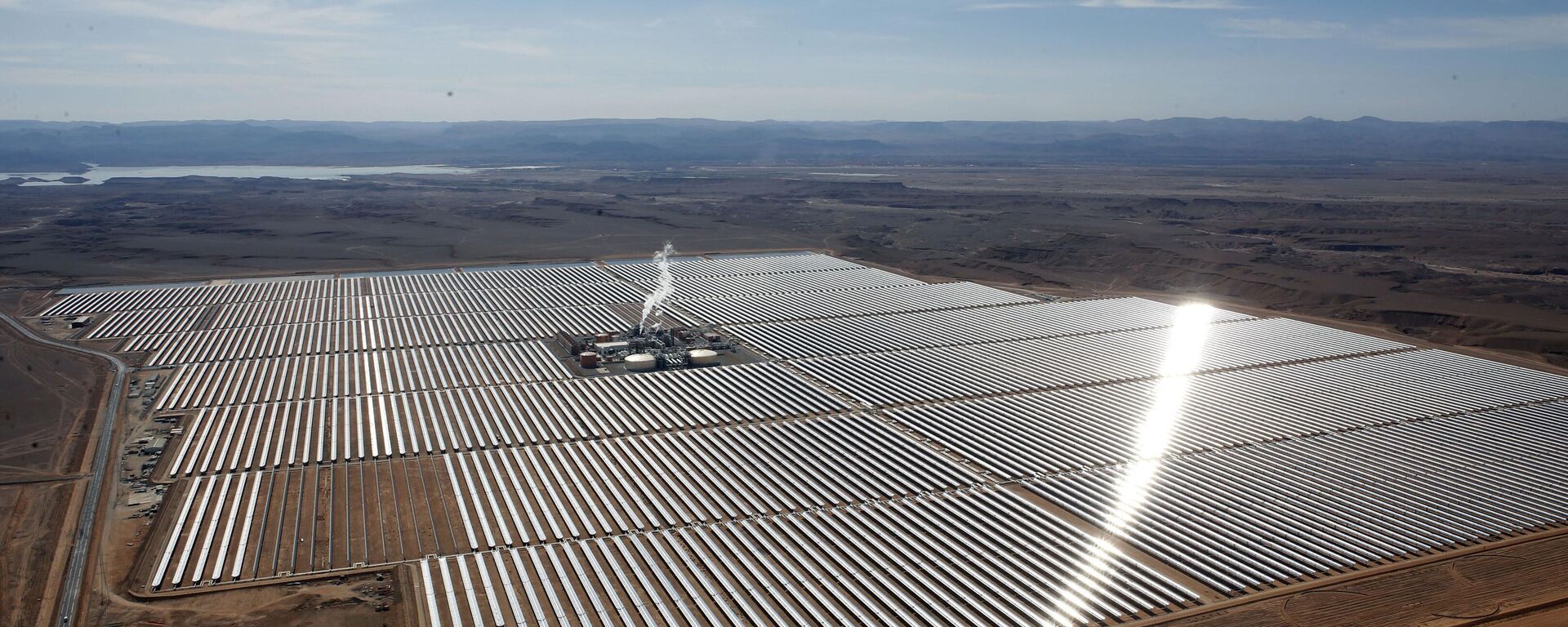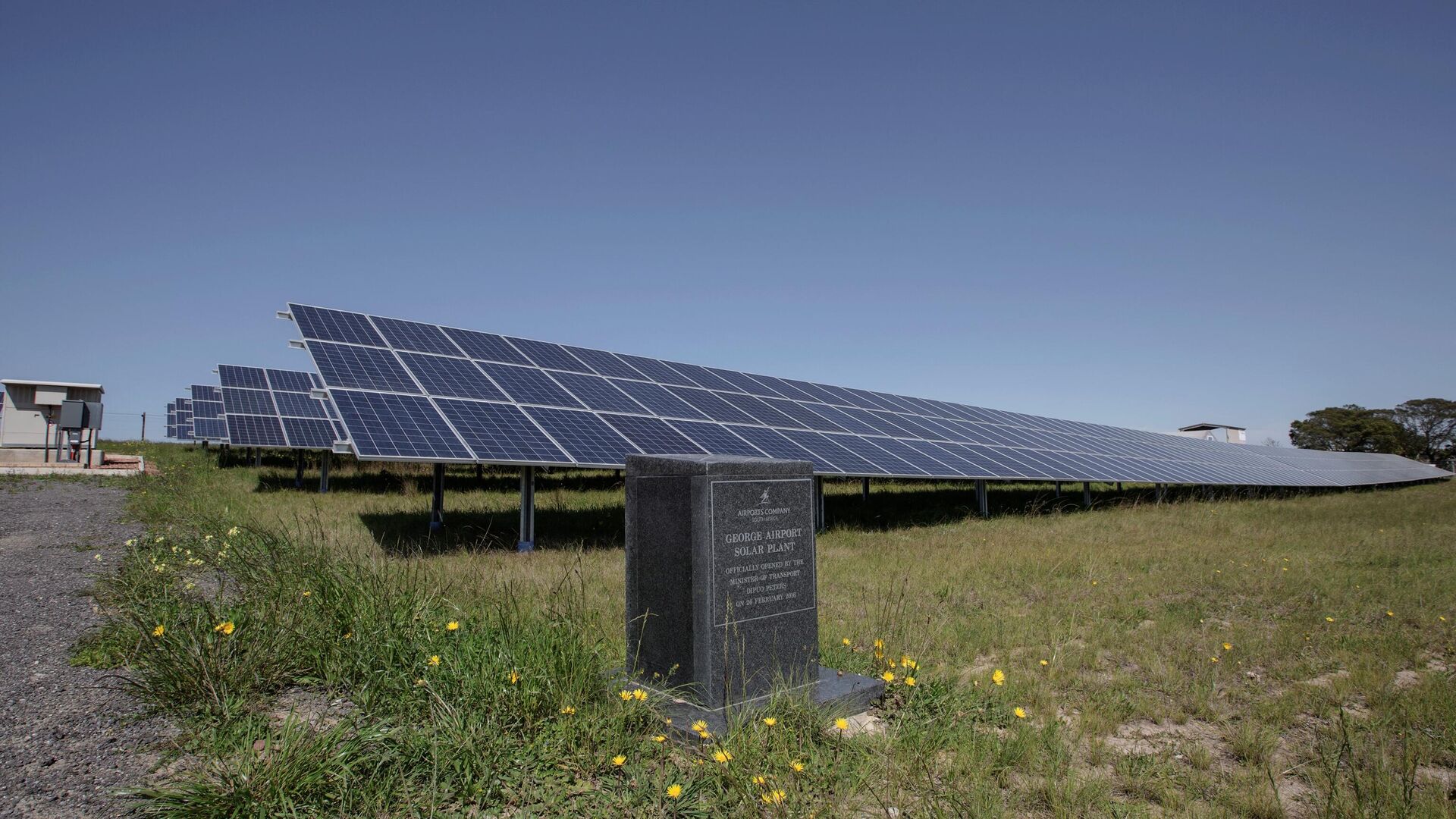https://sputnikglobe.com/20230310/german-company-conjuncta-and-mauritania-sign-34-bln-green-energy-deal-1108214870.html
German Company Conjuncta and Mauritania Sign $34 Bln Green Energy Deal
German Company Conjuncta and Mauritania Sign $34 Bln Green Energy Deal
Sputnik International
German firm Conjuncta has signed a memorandum of understanding for a $34 billion green energy project in Mauritania, reports say. The UAE's Infinity Power and Egypt's Infinity companies are also involved.
2023-03-10T06:14+0000
2023-03-10T06:14+0000
2023-04-12T17:05+0000
africa
west africa
mauritania
germany
european union (eu)
https://cdn1.img.sputnikglobe.com/img/07e7/03/09/1108217433_0:176:3073:1904_1920x0_80_0_0_809d0c755b7eaa535eaa37605201dae1.jpg
The German firm Conjuncta has signed a memorandum of understanding for a $34 billion green energy project in Mauritania, reports say. The UAE's Infinity Power and Egypt's Infinity companies are also involved.The project is aimed at the construction of a plant expected to produce up to eight million tons of green hydrogen and other hydrogen-based products per year northeast of Nouakchott, Mauritania's capital.According to Infinity Power, the project is planned to be developed in four stages, with the first 400 megawatt (MW) phase should be completed by 2028, while green energy is to be exported in the form of hydrogen or hydrogen derivatives, such as ammonia or methanol.Stefan Liebling, Conjuncta's CEO, outlined that the facility will be linked to Germany in terms of both technologies and green energy exports, adding that it is the biggest bilateral investment project for the company.Mauritania's Energy Minister Abdessalam Mohamed Saleh emphasized the country's eagerness to play the role of a leading green hydrogen economy and outlined the significance of the project to Mauritania.According to reports, last year BP, a major oil developer in the region, signed memorandum of understanding with the Mauritanian government to investigate the country's green H2 potential.Germany may benefit from the project thanks to its flagship H2 Global scheme, which was launched last year, reports say. The German government program offers subsidies to international H2 producers who sell hydrogen and its derivatives to the European market through a double auction scheme.The EU member state is involved in a number of renewable energy projects in Africa, as it intends to diversify its energy sources and to replace fuel imports from Russia after the bloc imposed sanctions against Moscow.Recently, European Union climate chief Frans Timmermans outlined Europe's need for African green hydrogen, stating that the EU "will need more green hydrogen than we can produce ourselves, so we're looking for countries where green hydrogen can be produced."The need is due to the EU having imposed sanctions on Russia following the beginning of the special military operation in Ukraine, thus impeding the green energy transition within the framework of the so-called European Green Deal. As a result, the bloc started looking for new energy sources, including in Africa.Some European officials have criticized Europe's policy towards Africa as neo-colonialist.
https://sputnikglobe.com/20230207/africa-likely-to-become-europes-most-important-renewable-energy-partner-eu-says-1107042522.html
africa
west africa
mauritania
germany
Sputnik International
feedback@sputniknews.com
+74956456601
MIA „Rosiya Segodnya“
2023
News
en_EN
Sputnik International
feedback@sputniknews.com
+74956456601
MIA „Rosiya Segodnya“
Sputnik International
feedback@sputniknews.com
+74956456601
MIA „Rosiya Segodnya“
green energy, renewable energy, green hydrogen, energy sources, wind and solar power, memorandum of understanding, european union, fuel imports, fuel exports, gas export, gas import, oil import, gas import
green energy, renewable energy, green hydrogen, energy sources, wind and solar power, memorandum of understanding, european union, fuel imports, fuel exports, gas export, gas import, oil import, gas import
German Company Conjuncta and Mauritania Sign $34 Bln Green Energy Deal
06:14 GMT 10.03.2023 (Updated: 17:05 GMT 12.04.2023) Russia had long been a major fuel supplier to the EU until the latter imposed sanctions against Moscow, reducing oil and gas supplies from the country after the start of the special military operation in Ukraine. The EU is now trying to diversify energy imports.
The German firm Conjuncta has signed a memorandum of understanding for a $34 billion green
energy project in Mauritania, reports say. The UAE's Infinity Power and Egypt's Infinity companies are also involved.
The project is aimed at the construction of a plant expected to produce up to eight million tons of green hydrogen and other hydrogen-based products per year northeast of Nouakchott, Mauritania's capital.
According to Infinity Power, the project is planned to be developed in four stages, with the first 400 megawatt (MW) phase should be completed by 2028, while green energy is to be exported in the form of hydrogen or hydrogen derivatives, such as ammonia or methanol.
Stefan Liebling, Conjuncta's CEO, outlined that the facility will be linked to Germany in terms of both technologies and green energy exports, adding that it is the biggest
bilateral investment project for the company.
"It will have a strong link to Germany both as a technology provider and a potential offtaker of green energy," Stefan Liebling said. "It is by far the largest bilateral investment project ever and we look forward to making it a success story that will attract a lot more business activities between the two countries."

7 February 2023, 13:04 GMT
Mauritania's Energy Minister Abdessalam Mohamed Saleh emphasized the country's eagerness to play the role of a leading green hydrogen economy and outlined the significance of the project to Mauritania.
"Our country is determined to play a leading position on the global map of the green hydrogen economy in the coming decades," the energy minister said. "We strongly believe that the development of the green hydrogen industry in Mauritania will bring environmental, economic and social benefits to our country and the world."
According to reports, last year BP, a major oil developer in the region,
signed memorandum of understanding with the Mauritanian government to investigate the country's green H2 potential.
Germany may benefit from the project thanks to its flagship H2 Global scheme, which was launched last year, reports say. The German government program offers subsidies to international H2 producers who sell hydrogen and its derivatives to the European market through a double auction scheme.
The EU member state
is involved in a number of renewable energy projects in Africa, as it intends to diversify its energy sources and to replace fuel imports from Russia after the bloc imposed sanctions against Moscow.
Recently, European Union climate chief Frans Timmermans outlined Europe's need for African green hydrogen, stating that the EU "will need more green hydrogen than we can produce ourselves, so we're looking for countries where green hydrogen can be produced."
The need is due to the EU having imposed sanctions on Russia following the beginning of the special military operation in Ukraine, thus impeding the green energy transition within the framework of the so-called European Green Deal. As a result, the bloc started looking for new energy sources, including in Africa.
Some European officials have criticized Europe's policy towards Africa as neo-colonialist.
"Our economic relations with Africa are simply a continuation of European colonialism, perpetuating exploitation by other means," Clare Daly, a member of the European Parliament, stated last year, adding that Africans are denied the fruits of their land and their labor due to unequal economic relations.





